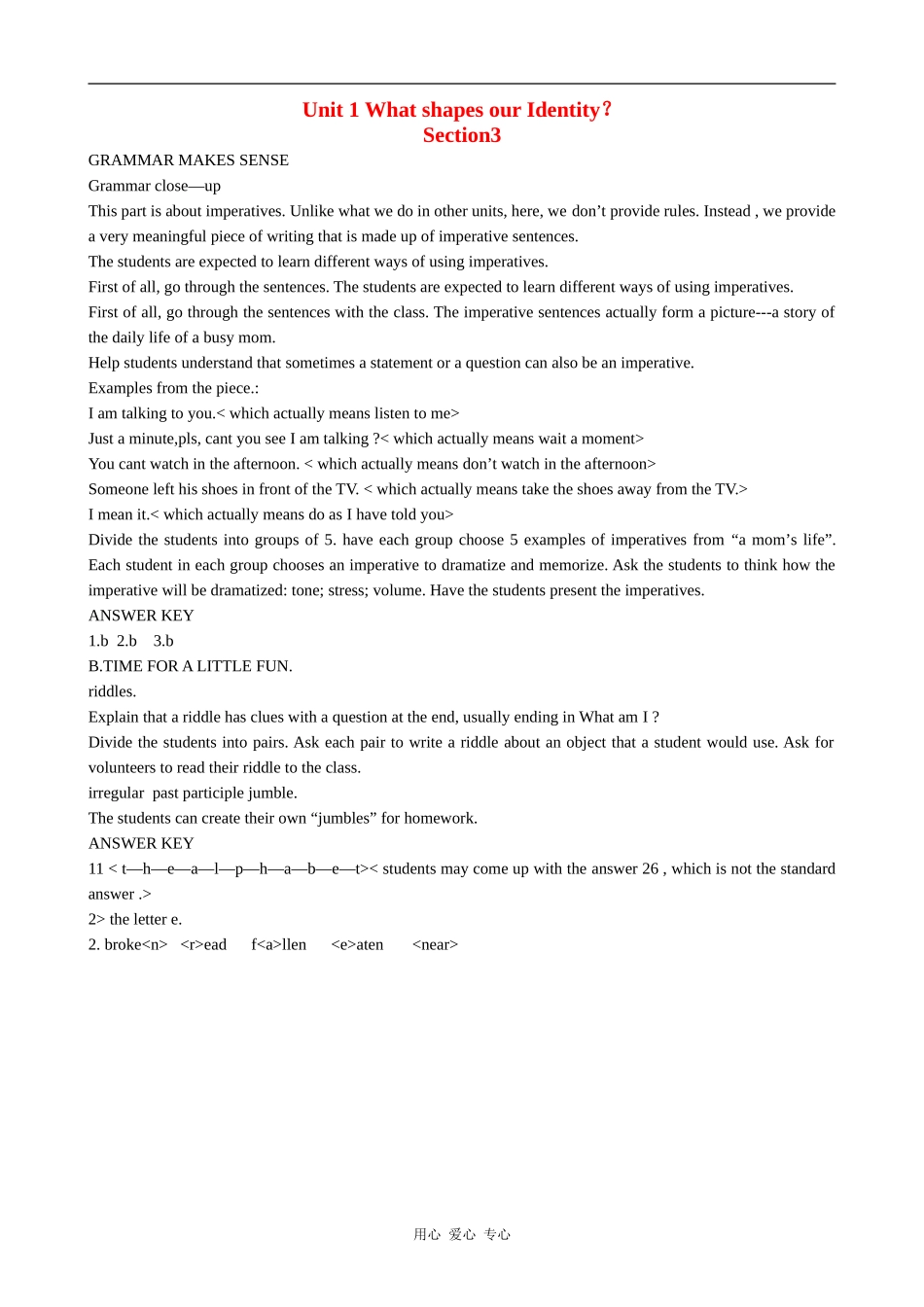Unit 1 What shapes our Identity?Section3GRAMMAR MAKES SENSEGrammar close—upThis part is about imperatives. Unlike what we do in other units, here, we don’t provide rules. Instead , we provide a very meaningful piece of writing that is made up of imperative sentences.The students are expected to learn different ways of using imperatives.First of all, go through the sentences. The students are expected to learn different ways of using imperatives.First of all, go through the sentences with the class. The imperative sentences actually form a picture---a story of the daily life of a busy mom.Help students understand that sometimes a statement or a question can also be an imperative.Examples from the piece.:I am talking to you.< which actually means listen to me>Just a minute,pls, cant you see I am talking ?< which actually means wait a moment>You cant watch in the afternoon. < which actually means don’t watch in the afternoon>Someone left his shoes in front of the TV. < which actually means take the shoes away from the TV.>I mean it.< which actually means do as I have told you>Divide the students into groups of 5. have each group choose 5 examples of imperatives from “a mom’s life”. Each student in each group chooses an imperative to dramatize and memorize. Ask the students to think how the imperative will be dramatized: tone; stress; volume. Have the students present the imperatives.ANSWER KEY1.b 2.b 3.bB.TIME FOR A LITTLE FUN.riddles.Explain that a riddle has clues with a question at the end, usually ending in What am I ?Divide the students into pairs. Ask each pair to write a riddle about an object that a student would use. Ask for volunteers to read their riddle to the class.irregular past participle jumble.The students can create their own “jumbles” for homework.ANSWER KEY11 < t—h—e—a—l—p—h—a—b—e—t>< students may come up with the answer 26 , which is not the standard answer .>2> the letter e.2. broke
ead fllen aten 用心 爱心 专心